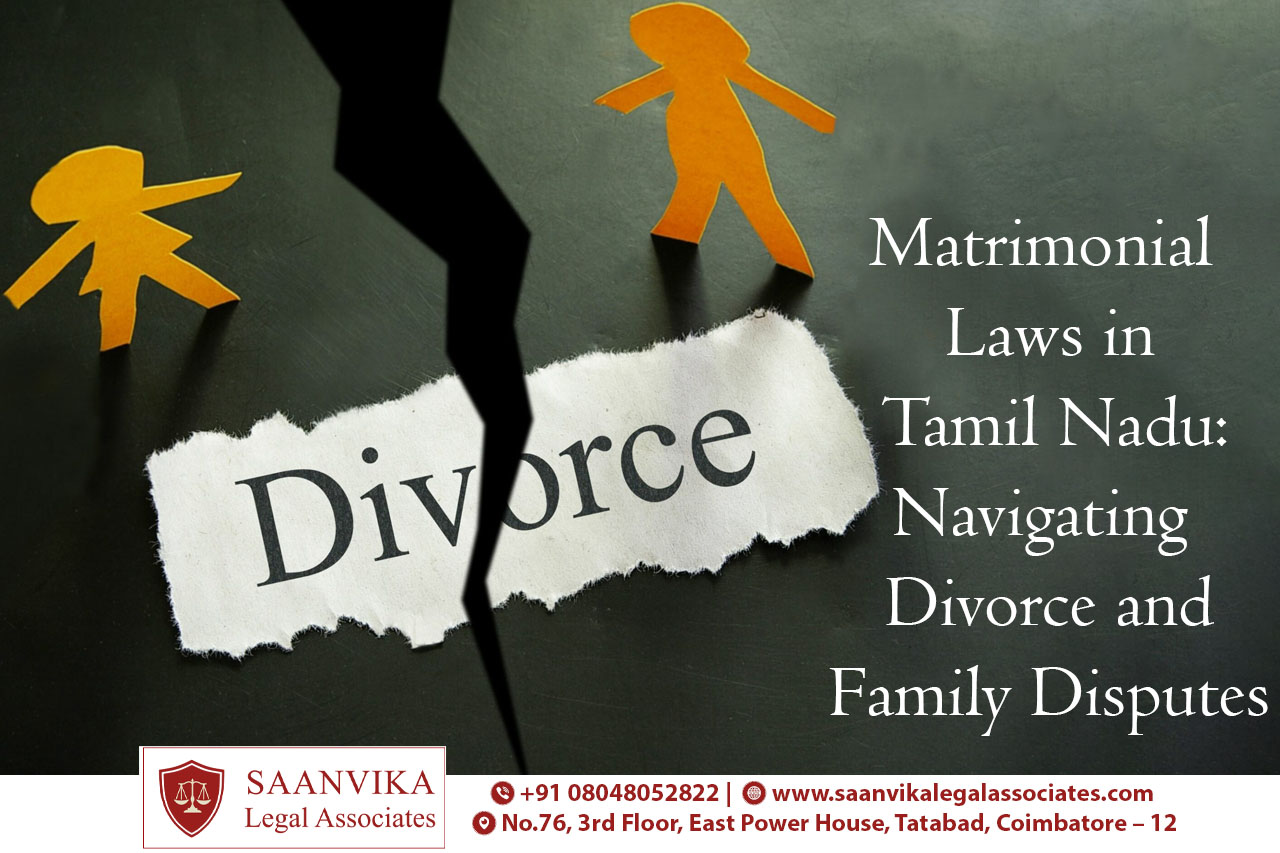
Matrimonial laws/ Matrimonial laws in Tamilnadu...

Matrimonial laws/ Matrimonial laws in Tamilnadu/ Divorce/ Family disputes/ Best law firm in Coimbatore/ Best advocates in Coimbatore/Best law service in Coimbatore/ Best legal consultation in Coimbatore/ Best legal services in Coimbatore/ Best lawyers in Coimbatore/ Online legal consultation. Matrimonial laws in Tamil Nadu, as in the rest of India, are primarily governed by the personal laws based on an individual's religion, including Hindu Law, Muslim Law, Christian Law, and other personal laws for various communities. Here's an overview of how divorce and family disputes are navigated in Tamil Nadu, particularly under Hindu law, which is applicable to the majority of the population: Under the Hindu Marriage Act, 1955, the following grounds are recognized for divorce: Adultery: If a spouse engages in extramarital relationships. Cruelty: Physical or mental cruelty that makes it impossible to live together. Desertion: If one spouse abandons the other without a valid reason for at least two years. Conversion: If a spouse converts to another religion. Mental Disorder: If a spouse suffers from a mental disorder and cannot be expected to live a normal married life. Communicable Disease: If a spouse has a severe communicable disease. Renunciation of the World: If a spouse renounces the world and becomes a sanyasi. Mediation and Counseling: Courts often encourage mediation and counseling to resolve family disputes, especially those related to child custody and property division. Family Courts: Family Courts in Tamil Nadu are dedicated to handling family-related matters, including divorce, maintenance, and child custody cases. Maintenance: The court can order the husband to provide financial support (maintenance) to the wife if she is unable to support herself. Alimony: In case of divorce, the court may order the husband to pay alimony, a one-time settlement, or provide for the wife's maintenance. Custody: The court decides child custody matters based on the child's best interests. Joint custody or visitation rights may be granted to the non-custodial parent. Child Support: The court can order one parent to pay child support to ensure the child's well-being, education, and healthcare. Filing for Divorce: One spouse files a divorce petition in the appropriate court, stating the grounds for divorce. Trial: Both parties present their cases, and witnesses may be called. Decree: If the court is satisfied, it grants a decree of divorce, making the divorce legally binding. Enforcement: Courts can enforce orders related to alimony, child support, or custody if one party fails to comply. Appeals: Dissatisfied parties can appeal the court's decision in higher courts if they believe there are legal grounds for a review. Navigating divorce and family disputes in Tamil Nadu requires understanding the applicable laws, legal procedures, and the specific circumstances of the case. It is advisable to consult with a qualified family law attorney who specializes in matrimonial disputes to guide you through the process. We at Saanvika Legal Associates offer various legal services such as Trust deeds, Financial law, Insurance law, and other laws including Environment, Consumer, Property, Banking, Tax, Cyber Constitutions, Labor, Civil, Criminal, Family, Property, registration, Getting docs, and so on. Also, you can consult all aspects related to Legal notice, documentation, Legal registration, Property organization, forming companies, Family legal consultation, Civil and Criminal legal consultants, and Litigation of finance and property.
Keywords
Subscribe for latest offers & updates
We hate spam too.


